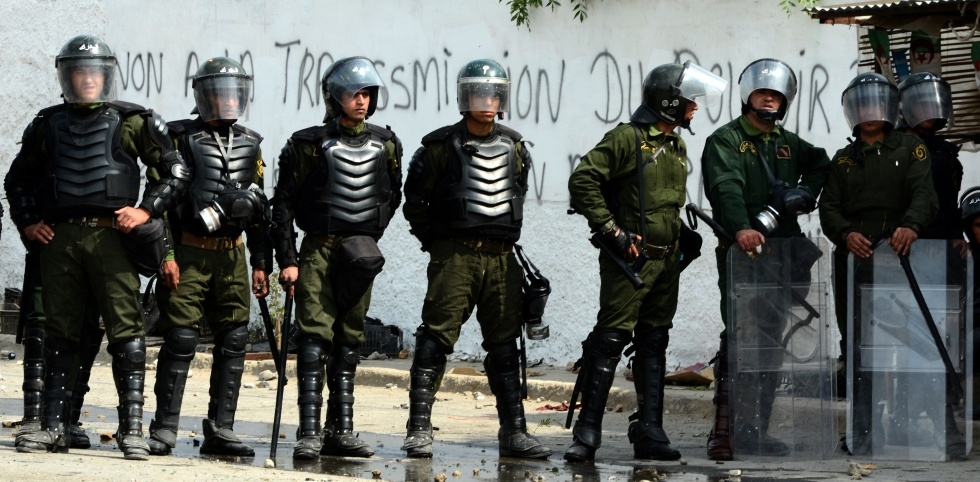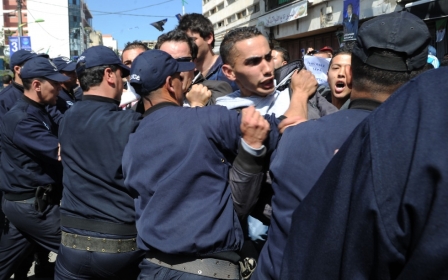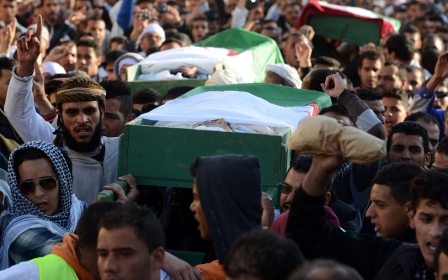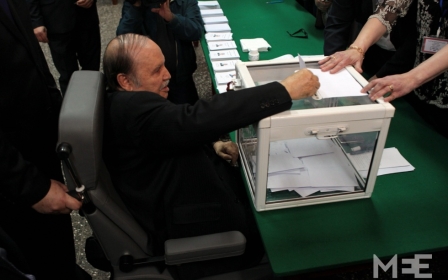Algerian army seeks armed group after 11 soldiers killed

Algeria’s army is searching for an armed group linked to an attack in the rugged Kabylie region in the north of the coutry in which 11 soldiers were killed, according to media reports on Monday.
Amed forces including paratroopers have been combing the region, an unnamed security official told AFP. "Important reinforcements have been dispatched to Iboudrarene” about 70 kilometres east of Algiers, he said.
Three gunmen were killed during the ambush of an army convoy late on Saturday. Iboudrarene is a restive mountainous region where al-Qaeda in the Islamic Maghreb (AQIM) is reported to have a strong presence.
The 11 soldiers were from an army unit that had been deployed as part of a nationwide security operation for last Thursday’s controversial presidential election, in which President Abdelaziz Bouteflika won a fourth term, the source said.
The attack came a day after the announcement of Bouteflika’s electoral victory, in which he won 81.5 percent of the vote, despite claims by the local newspaper Al-Watan that the election was “blackmail through fear”. Several protests against Bouteflika’s re-election, including one in the capital Algiers, were subsequently suppressed by security forces.
New MEE newsletter: Jerusalem Dispatch
Sign up to get the latest insights and analysis on Israel-Palestine, alongside Turkey Unpacked and other MEE newsletters
Violence from armed groups in the Kabylie region has reduced in recent years, although AQIM continue to operate there, and a suicide attack on a military base in Azazga left 10 soldiers dead in April 2011.
Analysts say the government tolerates these groups in order to maintain their powerbase.
“For the past 20 years there have been terrorist attacks in Algeria, either just before an election or shortly afterwards, and the government allows these terrible incidents to happen in order to spread fear and protect their power,” Mohamed Zitout, former Algerian diplomat and founding member of the opposition group Rachad Movement, told Middle East Eye on Tuesday.
“Whilse terrorist groups are operating, there is a long history of the government manipulating the threat to suit their interests.”
Others disagree and say the attack is the result of armed groups seizing an opportunity to attack because of a lull in security awareness after the election.
“For the first three months of 2014, the army swept across the country and implemented an operation to protect security," Imad Mesdoua, an Algerian political analyst based in London, told MEE. "Now the election has taken place, security may have relaxed and these armed groups have taken advantage of the situation.
“It is speculation to say the government allowed armed groups to operate, as there is no proof we can point to in order to back up these claims” he added.
In a separate development in the same mainly Berber region of Kabylie, fresh clashes between protestors and security forces were also reported. More than 400 people gathered in the region’s main city Tizi Ouzou to commemorate the “Berber Spring”, a movement calling for recognition of the Berber language and culture that was brutally supressed by the Algerian government in the 1980s. However, the largely peaceful protests were met with force as security services responded by firing tear gas and making a number of arrests, according to an AFP journalist.
Kabylie was a flashpoint for protests during the presidential election. More than 70 people were injured in the clashes that erupted between security forces and young people seeking to disrupt the vote.
Middle East Eye delivers independent and unrivalled coverage and analysis of the Middle East, North Africa and beyond. To learn more about republishing this content and the associated fees, please fill out this form. More about MEE can be found here.




